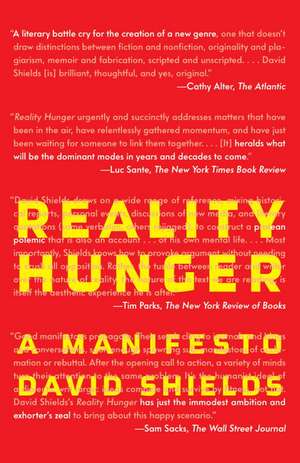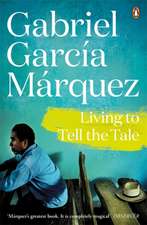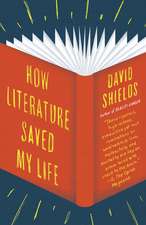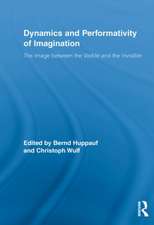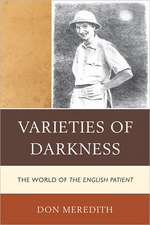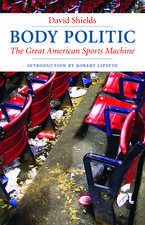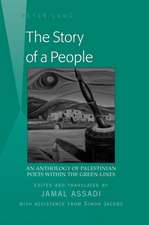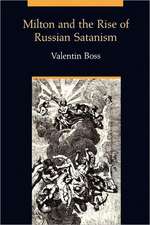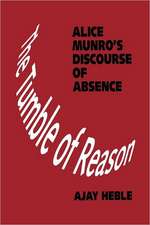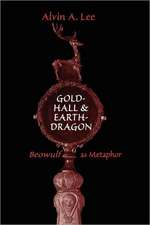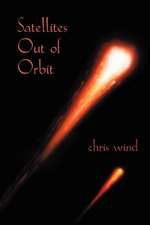Reality Hunger: A Manifesto
Autor David Shieldsen Limba Engleză Paperback – 31 ian 2011
| Toate formatele și edițiile | Preț | Express |
|---|---|---|
| Paperback (2) | 57.24 lei 24-30 zile | +18.91 lei 4-10 zile |
| Penguin Books – 2 mar 2011 | 57.24 lei 24-30 zile | +18.91 lei 4-10 zile |
| Vintage Books USA – 31 ian 2011 | 92.18 lei 3-5 săpt. |
Preț: 92.18 lei
Nou
Puncte Express: 138
Preț estimativ în valută:
17.64€ • 18.46$ • 14.68£
17.64€ • 18.46$ • 14.68£
Carte disponibilă
Livrare economică 10-24 martie
Preluare comenzi: 021 569.72.76
Specificații
ISBN-13: 9780307387974
ISBN-10: 0307387976
Pagini: 221
Dimensiuni: 135 x 202 x 18 mm
Greutate: 0.26 kg
Editura: Vintage Books USA
ISBN-10: 0307387976
Pagini: 221
Dimensiuni: 135 x 202 x 18 mm
Greutate: 0.26 kg
Editura: Vintage Books USA
Notă biografică
David Shields is the author of nine previous books, including The Thing About Life Is That One Day You'll Be Dead, a New York Times bestseller; Black Planet, a finalist for the National Book Critics Circle Award; and Remote, winner of the PEN/Revson Award. His work has been translated into fifteen languages.
Visit his website at www.davidshields.com.
Visit his website at www.davidshields.com.
Extras
a
overture
1
Every artistic movement from the beginning of time is an attempt to figure out a way to smuggle more of what the artist thinks is reality into the work of art. Zola: “Every proper artist is more or less a realist according to his own eyes.” Braque’s goal: “To get as close as I could to reality.” E.g., Chekhov’s diaries, E. M. Forster’s Commonplace Book, Fitzgerald’s The Crack-Up (much his best book), Cheever’s posthumously ?pub?lished journals (same), Edward Hoagland’s journals, Alan ?Bennett’s Writing Home. So, too, every artistic movement or moment needs a credo: Horace’s Ars Poetica, Sir Philip Sid- ney’s Defence of Poesie, André Breton’s “Surrealist Manifesto,” Dogme 95’s “Vow of Chasity.” My intent is to write the ars poetica for a burgeoning group of interrelated (but unconnected) artists in a multitude of forms and media (lyric essay, prose poem, collage novel, visual art, film, television, radio, performance art, rap, stand-up comedy, graffiti) who are breaking larger and larger chunks of “reality” into their work. (Reality, as Nabokov never got tired of reminding us, is the one word that is meaningless without quotation marks.)
2
Jeff Crouse’s plug-in Delete City. The quasiߝhome movie Open Water. Borat: Cultural Learnings of America for Make Benefit ?Glo?rious Nation of Kazakhstan. Joe Frank’s radio show In the Dark. The depilation scene in The 40-Year-Old Virgin. Lynn Shel- ton’s unscripted film Humpday (“All the writing takes place in the editing room”). Nicholas Barker’s “real-life feature” Unmade Beds, in which actors speak from a script based on interviews they conducted with Barker; the structure is that of a documentary, but a small percentage of the material is made up. Todd Haynes’s Superstar—a biopic of Karen Carpenter that uses Barbie dolls as the principal actors and is available now only as a bootleg video. Curb Your Enthusiasm, which—characteristic of this genre, this ungenre, this antigenre—relies on viewer awareness of the creator’s self-conscious, wobbly manipulation of the gap between person and persona. The Eminem Show, in which Marshall Mathers struggles to metabolize his fame and work through “family of origin” issues (life and/or art?). The Museum of (fictional) Jurassic Technology, which actually exists in Culver City. The (completely fictional) International Necronautical Society’s (utterly serious) “Declaration of Inauthenticity.” So, too, public-access TV, karaoke nights, VH1’s Behind the Music series, “behind-the-scenes” interviews running parallel to the “real” action on reality television shows, rap artists taking a slice of an existing song and building an entirely new song on top of it, DVDs of feature films that inevitably include a documentary on the “making of the movie.” The Bachelor tells us more about the state of unions than any romantic comedy could dream of telling us. The appeal of Billy Collins is that compared with the frequently hieroglyphic obscurantism of his colleagues, his poems sound like they were tossed off in a couple of hours while he drank scotch and listened to jazz late at night (they weren’t; this is an illusion). A Heartbreaking Work of Staggering Genius was full of the same self-conscious apparatus that had bored everyone silly until it got tethered to what felt like someone’s “real life” (even if the author constantly reminded us how fictionalized that life was). At once desperate for authenticity and in love with artifice, I know all the moments are “moments”: staged and theatrical, shaped and thematized. I find I can listen to talk radio in a way that I can’t abide the network news—the sound of human voices waking before they drown.
3
An artistic movement, albeit an organic and as-yet-unstated one, is forming. What are its key components? A deliberate unartiness: “raw” material, seemingly unprocessed, unfiltered, uncensored, and unprofessional. (What, in the last half century, has been more influential than Abraham Zapruder’s Super-8 film of the Kennedy assassination?) Randomness, openness to accident and serendipity, spontaneity; artistic risk, emotional urgency and intensity, reader/viewer participation; an overly literal tone, as if a reporter were viewing a strange culture; plasticity of form, pointillism; criticism as autobiography; self-reflexivity, self-ethnography, anthropological autobiography; a blurring (to the point of invisibility) of any distinction between fiction and nonfiction: the lure and blur of the real.
4
In most books, the I, or first person, is omitted; in this it will be retained; that, in respect to egotism, is the main difference. We commonly do not remember that it is, after all, always the first person that is speaking.
5
It must all be considered as if spoken by a character in a novel (minus the novel).
6
I need say nothing, only exhibit.
y
manifesto
588
It’s a commonplace that every book needs to find its own form, but how many do?
589
If you want to write serious books, you must be ready to break the forms.
590
All great works of literature either dissolve a genre or invent one. Let Us All Now Praise Famous Men. Nadja. Cane. Oh, What a Blow That Phantom Gave Me! “The Moon in Its Flight.” Wisconsin Death Trip. Letters to Wendy’s.
591
We evaluate artists by how much they are able to rid themselves of convention.
592
Jazz as jazz—jazzy jazz—is pretty well finished. The interesting stuff is all happening on the fringes of the form where there are elements of jazz and elements of all sorts of other things as well. Jazz is a trace, but it’s not a defining trace. Something similar is happening in prose. Although great novels—novelly novels—are still being written, a lot of the most interesting things are happening on the fringes of several forms.
593
Still (very still), at the heart of “literary culture” is the big, blockbuster novel by middle-of-the-road writers, the run-of the- mill four-hundred-page page-turner. Amazingly, people continue to want to read that.
594
The Corrections, say: I couldn’t read that book if my life depended on it. It might be a “good” novel or it might be a “bad” novel, but something has happened to my imagination, which can no longer yield to the earnest embrace of novelistic form.
595
Is it possible that contemporary literary prizes are a bit like the federal bailout package, subsidizing work that is no longer remotely describing reality?
596
If literary terms were about artistic merit and not the rules of convenience, about achievement and not safety, the term realism would be an honorary one, conferred only on work that actually builds unsentimental reality on the page, that matches the complexity of life with an equally rich arrangement in language. It would be assigned no matter the stylistic or linguistic method, no matter the form. This, alas, would exclude many writers who believe themselves to be realistic, most notably those who seem to equate writing with operating a massive karaoke machine.
597
A novel, for most readers—and critics—is primarily a “story.” A true novelist is one who knows how to “tell a story.” To “tell a story well” is to make what one writes resemble the schemes people are used to—in other words, their ready-made idea of reality. But a work of art, like the world, is a living form. It’s in its form that its reality resides.
598
Urgency attaches itself now more to the tale taken directly from life than one fashioned by the imagination out of life.
599
I want the veil of “let’s pretend” out. I don’t like to be carried into purely fanciful circumstances. The never-never lands of the imagination don’t interest me that much. Beckett decided that everything was false to him, almost, in art, with its designs and formulae. He wanted art, but he wanted it right from life. He didn’t like, finally, that Joycean voice that was too abundant, too Irish, endlessly lyrical, endlessly allusive. He went into French to cut down. He wanted to directly address desperate individual existence, which bores many readers. I find him a joyous writer, though; his work reads like prayer. You don’t have to think about literary allusions but experience itself. That’s what I want from the voice. I want it to transcend artifice.
600
This is life lived on high alert.
601
Nearly all writing, up to the present, has been a search for the “beautiful illusion.”
602
Nowhere do you get the feeling of a writer deforming his medium in order to say what has never been said before, which is to me the mark of great writing.
603
Very well. I am not in search of the “beautiful illusion.”
604
Critics can’t believe that the power to make us feel our one and only life, as very few novelists actually do these days, has come from a memoirist, a nonfiction truth-speaker who has entered our common situation and is telling the story we now want told. But it has.
605
There’s inevitably something terribly contrived about the standard novel; you can always feel the wheels grinding and going on.
606
If you write a novel, you sit and weave a little narrative. If you’re a romantic writer, you write novels about men and women falling in love, give a little narrative here and there, etc. And it’s okay, but it’s of no account. Novel qua novel is a form of nostalgia.
607
There is more to be pondered in the grain and texture of life than traditional fiction allows. The work of essayists is vital precisely because it permits and encourages self-knowledge in a way that is less indirect than fiction, more open and speculative.
608
One would like to think that the personal essay represents basic research on the self, in ways that are allied with science and philosophy.
609
The poem and the essay are more intimately related than any two genres, because they’re both ways of pursuing problems, or maybe trying to solve problems—The Dream Songs, the long prologue to Slaughterhouse-Five, pretty much all of Philip Larkin and Anne Carson, Annie Dillard’s For the Time Being. Maybe these works succeed, maybe they fail, but at least they all attempt to clarify the problem at hand. They’re journeys, pursuits of knowledge. One could say that fiction, metaphorically, is a pursuit of knowledge, but ultimately it’s a form of entertainment. I think that, at the very least, essays and poems more directly and more urgently attempt to figure out something about the world. Which is why I can’t read novels anymore, with very few exceptions, the exceptions being those
novels so meditative they’re barely disguised essays. David Markson’s This Is Not a Novel, Reader’s Block, Vanishing Point, The Last Novel. Coetzee’s Elizabeth Costello. Kundera’s Immortality. Most of Houellebecq. Doctorow’s The Book of Daniel. Benjamin Constant’s Adolphe. Lydia Davis, everything.
610
The kinds of novels I like are ones which bear no trace of being novels.
611
Only the suspect artist starts from art; the true artist draws his material elsewhere: from himself. There’s only one thing worse than boredom—the fear of boredom—and it’s this fear I experience every time I open a novel. I have no use for the hero’s life, don’t attend to it, don’t even believe in it. The genre, having squandered its substance, no longer has an object. The character is dying out; the plot, too. It’s no accident that the only novels deserving of interest today are those in which, once the universe is disbanded, nothing happens—e.g., Tristram Shandy, Notes from Underground, Camus’s The Fall, Thomas Bern hard’s Correction, Duras’s The Lover, Barry Hannah’s Boomerang.
612
What the lyric essay inherits from the public essay is a facthungry pursuit of solutions to problems, while from the personal essay it takes a wide-eyed dallying in the heat of predicaments. Lyric essays seek answers yet seldom seem to find them. They may arise out of a public essay that never manages to prove its case, may emerge from the stalk of a personal essay to sprout out and meet “the other,” may start out as trav- elogues that forget where they are or begin as prose poems that refuse quick conclusions, may originate as lines that resist being broken or full-bodied paragraphs that start slimming down. They’re hybrids that perch on the fence between the willed and the felt. A lyric essay is an oxymoron: an essay that’s also a lyric, a kind of logic that wants to sing, an argument that has no chance of proving out.
613
An essay that becomes a lyric is an essay that has killed itself.
614
There are no facts, only art.
615
What actually happened is only raw material; what the writer makes of what happened is all that matters.
616
Once upon a time there will be readers who won’t care what imaginative writing is called and will read it for its passion, its force of intellect, and its formal originality.
617
Never again will a single story be told as though it were the only one.
Appendix:
2 Sentence about Unmade Beds: Soyon Im, “The Good, the Bad, and the Ugly,” Seattle Weekly
4 Thoreau
5 Roland Barthes, Barthes by Barthes (who else would be the author?); “minus the novel”: Michael Dirda, “Whispers in the Darkness,” Washington Post
6 Walter Benjamin
588 O’Brien
589 Naipaul, quoted in James Wood, “Wounder and Wounded,” New Yorker
590 First sentence: Benjamin
591 Richard Serra, quoted in Kimmelman, “At the Met and the Modern with
Richard Serra,” New York Times
592 Dyer
596 Marcus, “Why Experimental Fiction Threatens to Destroy Publishing,
Jonathan Franzen, and Life as We Know It,” Harper’s
597 Robbe-Grillet
598 Gornick
599 Hannah
601 Williams, Spring and All
602 Coetzee, Summertime
603 Williams
604 Gornick
605 Sebald
606 All but last sentence: Naipaul, quoted in Donadio, “The Irascible
Prophet,” New York Times
607ߝ608 Lopate
609 First five sentences except titles: D’Agata, Collision interview
610 Dyer, Out of Sheer Rage
611 Except for titles, E. M. Cioran, The Temptation to Exist
612 D’Agata, The Next American Essay
613 Plutarch
614 Emerson
615 Gornick
616 Marcus, “The Genre Artist,” Believer
617 Berger, G
From the Hardcover edition.
overture
1
Every artistic movement from the beginning of time is an attempt to figure out a way to smuggle more of what the artist thinks is reality into the work of art. Zola: “Every proper artist is more or less a realist according to his own eyes.” Braque’s goal: “To get as close as I could to reality.” E.g., Chekhov’s diaries, E. M. Forster’s Commonplace Book, Fitzgerald’s The Crack-Up (much his best book), Cheever’s posthumously ?pub?lished journals (same), Edward Hoagland’s journals, Alan ?Bennett’s Writing Home. So, too, every artistic movement or moment needs a credo: Horace’s Ars Poetica, Sir Philip Sid- ney’s Defence of Poesie, André Breton’s “Surrealist Manifesto,” Dogme 95’s “Vow of Chasity.” My intent is to write the ars poetica for a burgeoning group of interrelated (but unconnected) artists in a multitude of forms and media (lyric essay, prose poem, collage novel, visual art, film, television, radio, performance art, rap, stand-up comedy, graffiti) who are breaking larger and larger chunks of “reality” into their work. (Reality, as Nabokov never got tired of reminding us, is the one word that is meaningless without quotation marks.)
2
Jeff Crouse’s plug-in Delete City. The quasiߝhome movie Open Water. Borat: Cultural Learnings of America for Make Benefit ?Glo?rious Nation of Kazakhstan. Joe Frank’s radio show In the Dark. The depilation scene in The 40-Year-Old Virgin. Lynn Shel- ton’s unscripted film Humpday (“All the writing takes place in the editing room”). Nicholas Barker’s “real-life feature” Unmade Beds, in which actors speak from a script based on interviews they conducted with Barker; the structure is that of a documentary, but a small percentage of the material is made up. Todd Haynes’s Superstar—a biopic of Karen Carpenter that uses Barbie dolls as the principal actors and is available now only as a bootleg video. Curb Your Enthusiasm, which—characteristic of this genre, this ungenre, this antigenre—relies on viewer awareness of the creator’s self-conscious, wobbly manipulation of the gap between person and persona. The Eminem Show, in which Marshall Mathers struggles to metabolize his fame and work through “family of origin” issues (life and/or art?). The Museum of (fictional) Jurassic Technology, which actually exists in Culver City. The (completely fictional) International Necronautical Society’s (utterly serious) “Declaration of Inauthenticity.” So, too, public-access TV, karaoke nights, VH1’s Behind the Music series, “behind-the-scenes” interviews running parallel to the “real” action on reality television shows, rap artists taking a slice of an existing song and building an entirely new song on top of it, DVDs of feature films that inevitably include a documentary on the “making of the movie.” The Bachelor tells us more about the state of unions than any romantic comedy could dream of telling us. The appeal of Billy Collins is that compared with the frequently hieroglyphic obscurantism of his colleagues, his poems sound like they were tossed off in a couple of hours while he drank scotch and listened to jazz late at night (they weren’t; this is an illusion). A Heartbreaking Work of Staggering Genius was full of the same self-conscious apparatus that had bored everyone silly until it got tethered to what felt like someone’s “real life” (even if the author constantly reminded us how fictionalized that life was). At once desperate for authenticity and in love with artifice, I know all the moments are “moments”: staged and theatrical, shaped and thematized. I find I can listen to talk radio in a way that I can’t abide the network news—the sound of human voices waking before they drown.
3
An artistic movement, albeit an organic and as-yet-unstated one, is forming. What are its key components? A deliberate unartiness: “raw” material, seemingly unprocessed, unfiltered, uncensored, and unprofessional. (What, in the last half century, has been more influential than Abraham Zapruder’s Super-8 film of the Kennedy assassination?) Randomness, openness to accident and serendipity, spontaneity; artistic risk, emotional urgency and intensity, reader/viewer participation; an overly literal tone, as if a reporter were viewing a strange culture; plasticity of form, pointillism; criticism as autobiography; self-reflexivity, self-ethnography, anthropological autobiography; a blurring (to the point of invisibility) of any distinction between fiction and nonfiction: the lure and blur of the real.
4
In most books, the I, or first person, is omitted; in this it will be retained; that, in respect to egotism, is the main difference. We commonly do not remember that it is, after all, always the first person that is speaking.
5
It must all be considered as if spoken by a character in a novel (minus the novel).
6
I need say nothing, only exhibit.
y
manifesto
588
It’s a commonplace that every book needs to find its own form, but how many do?
589
If you want to write serious books, you must be ready to break the forms.
590
All great works of literature either dissolve a genre or invent one. Let Us All Now Praise Famous Men. Nadja. Cane. Oh, What a Blow That Phantom Gave Me! “The Moon in Its Flight.” Wisconsin Death Trip. Letters to Wendy’s.
591
We evaluate artists by how much they are able to rid themselves of convention.
592
Jazz as jazz—jazzy jazz—is pretty well finished. The interesting stuff is all happening on the fringes of the form where there are elements of jazz and elements of all sorts of other things as well. Jazz is a trace, but it’s not a defining trace. Something similar is happening in prose. Although great novels—novelly novels—are still being written, a lot of the most interesting things are happening on the fringes of several forms.
593
Still (very still), at the heart of “literary culture” is the big, blockbuster novel by middle-of-the-road writers, the run-of the- mill four-hundred-page page-turner. Amazingly, people continue to want to read that.
594
The Corrections, say: I couldn’t read that book if my life depended on it. It might be a “good” novel or it might be a “bad” novel, but something has happened to my imagination, which can no longer yield to the earnest embrace of novelistic form.
595
Is it possible that contemporary literary prizes are a bit like the federal bailout package, subsidizing work that is no longer remotely describing reality?
596
If literary terms were about artistic merit and not the rules of convenience, about achievement and not safety, the term realism would be an honorary one, conferred only on work that actually builds unsentimental reality on the page, that matches the complexity of life with an equally rich arrangement in language. It would be assigned no matter the stylistic or linguistic method, no matter the form. This, alas, would exclude many writers who believe themselves to be realistic, most notably those who seem to equate writing with operating a massive karaoke machine.
597
A novel, for most readers—and critics—is primarily a “story.” A true novelist is one who knows how to “tell a story.” To “tell a story well” is to make what one writes resemble the schemes people are used to—in other words, their ready-made idea of reality. But a work of art, like the world, is a living form. It’s in its form that its reality resides.
598
Urgency attaches itself now more to the tale taken directly from life than one fashioned by the imagination out of life.
599
I want the veil of “let’s pretend” out. I don’t like to be carried into purely fanciful circumstances. The never-never lands of the imagination don’t interest me that much. Beckett decided that everything was false to him, almost, in art, with its designs and formulae. He wanted art, but he wanted it right from life. He didn’t like, finally, that Joycean voice that was too abundant, too Irish, endlessly lyrical, endlessly allusive. He went into French to cut down. He wanted to directly address desperate individual existence, which bores many readers. I find him a joyous writer, though; his work reads like prayer. You don’t have to think about literary allusions but experience itself. That’s what I want from the voice. I want it to transcend artifice.
600
This is life lived on high alert.
601
Nearly all writing, up to the present, has been a search for the “beautiful illusion.”
602
Nowhere do you get the feeling of a writer deforming his medium in order to say what has never been said before, which is to me the mark of great writing.
603
Very well. I am not in search of the “beautiful illusion.”
604
Critics can’t believe that the power to make us feel our one and only life, as very few novelists actually do these days, has come from a memoirist, a nonfiction truth-speaker who has entered our common situation and is telling the story we now want told. But it has.
605
There’s inevitably something terribly contrived about the standard novel; you can always feel the wheels grinding and going on.
606
If you write a novel, you sit and weave a little narrative. If you’re a romantic writer, you write novels about men and women falling in love, give a little narrative here and there, etc. And it’s okay, but it’s of no account. Novel qua novel is a form of nostalgia.
607
There is more to be pondered in the grain and texture of life than traditional fiction allows. The work of essayists is vital precisely because it permits and encourages self-knowledge in a way that is less indirect than fiction, more open and speculative.
608
One would like to think that the personal essay represents basic research on the self, in ways that are allied with science and philosophy.
609
The poem and the essay are more intimately related than any two genres, because they’re both ways of pursuing problems, or maybe trying to solve problems—The Dream Songs, the long prologue to Slaughterhouse-Five, pretty much all of Philip Larkin and Anne Carson, Annie Dillard’s For the Time Being. Maybe these works succeed, maybe they fail, but at least they all attempt to clarify the problem at hand. They’re journeys, pursuits of knowledge. One could say that fiction, metaphorically, is a pursuit of knowledge, but ultimately it’s a form of entertainment. I think that, at the very least, essays and poems more directly and more urgently attempt to figure out something about the world. Which is why I can’t read novels anymore, with very few exceptions, the exceptions being those
novels so meditative they’re barely disguised essays. David Markson’s This Is Not a Novel, Reader’s Block, Vanishing Point, The Last Novel. Coetzee’s Elizabeth Costello. Kundera’s Immortality. Most of Houellebecq. Doctorow’s The Book of Daniel. Benjamin Constant’s Adolphe. Lydia Davis, everything.
610
The kinds of novels I like are ones which bear no trace of being novels.
611
Only the suspect artist starts from art; the true artist draws his material elsewhere: from himself. There’s only one thing worse than boredom—the fear of boredom—and it’s this fear I experience every time I open a novel. I have no use for the hero’s life, don’t attend to it, don’t even believe in it. The genre, having squandered its substance, no longer has an object. The character is dying out; the plot, too. It’s no accident that the only novels deserving of interest today are those in which, once the universe is disbanded, nothing happens—e.g., Tristram Shandy, Notes from Underground, Camus’s The Fall, Thomas Bern hard’s Correction, Duras’s The Lover, Barry Hannah’s Boomerang.
612
What the lyric essay inherits from the public essay is a facthungry pursuit of solutions to problems, while from the personal essay it takes a wide-eyed dallying in the heat of predicaments. Lyric essays seek answers yet seldom seem to find them. They may arise out of a public essay that never manages to prove its case, may emerge from the stalk of a personal essay to sprout out and meet “the other,” may start out as trav- elogues that forget where they are or begin as prose poems that refuse quick conclusions, may originate as lines that resist being broken or full-bodied paragraphs that start slimming down. They’re hybrids that perch on the fence between the willed and the felt. A lyric essay is an oxymoron: an essay that’s also a lyric, a kind of logic that wants to sing, an argument that has no chance of proving out.
613
An essay that becomes a lyric is an essay that has killed itself.
614
There are no facts, only art.
615
What actually happened is only raw material; what the writer makes of what happened is all that matters.
616
Once upon a time there will be readers who won’t care what imaginative writing is called and will read it for its passion, its force of intellect, and its formal originality.
617
Never again will a single story be told as though it were the only one.
Appendix:
2 Sentence about Unmade Beds: Soyon Im, “The Good, the Bad, and the Ugly,” Seattle Weekly
4 Thoreau
5 Roland Barthes, Barthes by Barthes (who else would be the author?); “minus the novel”: Michael Dirda, “Whispers in the Darkness,” Washington Post
6 Walter Benjamin
588 O’Brien
589 Naipaul, quoted in James Wood, “Wounder and Wounded,” New Yorker
590 First sentence: Benjamin
591 Richard Serra, quoted in Kimmelman, “At the Met and the Modern with
Richard Serra,” New York Times
592 Dyer
596 Marcus, “Why Experimental Fiction Threatens to Destroy Publishing,
Jonathan Franzen, and Life as We Know It,” Harper’s
597 Robbe-Grillet
598 Gornick
599 Hannah
601 Williams, Spring and All
602 Coetzee, Summertime
603 Williams
604 Gornick
605 Sebald
606 All but last sentence: Naipaul, quoted in Donadio, “The Irascible
Prophet,” New York Times
607ߝ608 Lopate
609 First five sentences except titles: D’Agata, Collision interview
610 Dyer, Out of Sheer Rage
611 Except for titles, E. M. Cioran, The Temptation to Exist
612 D’Agata, The Next American Essay
613 Plutarch
614 Emerson
615 Gornick
616 Marcus, “The Genre Artist,” Believer
617 Berger, G
From the Hardcover edition.
Recenzii
“A literary battle cry for the creation of a new genre, one that doesn’t draw distinctions between fiction and nonfiction, originality and plagiarism, memoir and fabrication, scripted and unscripted. . . . David Shields [is] brilliant, thoughtful, and yes, original.”
—Cathy Alter, The Atlantic
“Reality Hunger urgently and succinctly addresses matters that have been in the air, have relentlessly gathered momentum, and have just been waiting for someone to link them together. . . . [It] heralds what will be the dominant modes in years and decades to come.”
—Luc Sante, The New York Times Book Review
“David Shields draws on a wide range of reference, mixing historical reports, personal events, discussions of new media, and literary quotations (some verbatim, others rejigged), to construct a protean polemic that is also an account . . . of his own mental life. . . . Most importantly, Shields knows how to provoke argument without needing to crush all opposition. Rather, the tussle between reader and writer over the nature of reality, the nature of the text we are reading, is itself the aesthetic experience he is after.”
—Tim Parks, The New York Review of Books
“Good manifestos propagate. Their seeds cling to journals and blogs and conversations, soon enough sprawling sub-manifestoes of acclamation or rebuttal. After the opening call to action, a variety of minds turn their attention to the same problem. It’s the humanist ideal of a dialectic writ large: ideas compete and survive by fitness, not fiat. David Shields’s Reality Hunger has just the immodest ambition and exhorter’s zeal to bring about this happy scenario.”
—Sam Sacks, The Wall Street Journal
“Shields’s radical intellectual manifesto is a rousing call to arms for all artists to reject the laws governing appropriation, obliterate the boundaries between fiction and nonfiction, and give rise to a new modern form.”
—Elissa Schappell, Vanity Fair
“I’ve just finished reading Reality Hunger and I’m lit up by it—astonished, intoxicated, ecstatic, overwhelmed. . . . It really is an urgent book: a piece of art-making itself, a sublime, exciting, outrageous, visionary volume.”
—Jonathan Lethem
“Raw and gorgeous. . . . It’s about time someone said something this honest in print.”
—Susan Salter Reynolds, Los Angeles Times
“Reality Hunger is more than thought-provoking; it’s one of the most beautiful books I’ve read in a long time.”
—Jonathan Safran Foer
“Provocative, brain-rewiring. . . . A book that feels at least five years ahead of its time and teaches you how to read it as you go.”
—Alex Pappademas, GQ
“Maybe he’s simply ahead of the rest of us, mapping out the literary future of the next generation.”
—Susan H. Greenberg, Newsweek
“A work of virtuoso banditry that promises to become, like Lewis Hyde’s The Gift for earlier generations, the book that artists in all media turn to for inspiration, vindication, and altercation as they struggle to reinvent themselves against the headwinds of our time.”
—Rob Nixon, The Chronicle of Higher Education
“A rare and very peculiar thing: a wake-up call that is a pleasure to hear and respond to.”
—Geoff Dyer
“This dude’s book is the hip-hop album of the year.”
—Peter Macia, Fader
“I don’t think it would be too strong to say that Shields’s book will be a sort of bible for the next generation of culture-makers.”
—David Griffith, Bookslut
“One of the most provocative books I’ve ever read. . . . I think it’s destined to become a classic.”
—Charles D’Ambrosio
“Voracious and elegantly structured. . . . Entertaining, insightful, and impressively broad. . . . An invigorating shakedown of the literary status quo: recommended for readers, essential for writers.”
—Scott Indrisek, Time Out New York
“Shields has put a bullet in the brain of our ridiculously oversimplified compulsion to think of everything as a narrative.”
—Paul Constant, The Stranger
“Might be the most intense, thought-accelerating book of the last ten years.”
—Chuck Klosterman
“Shields has a point. He gives a damn. He’s trying to make a difference. He’s using the best of his formidable talents to do that.”
—Wayne Alan Brenner, The Austin Chronicle
“Witty, insightful, and compulsively readable. Every page abounds in fresh observations.”
—Lydia Davis
“This is the book our sick-at-heart moment needs—like a sock in the jaw or an electric jolt in the solar plexus—to wake it up.”
—Wayne Koestenbaum
“Absorbing, even inspiring. . . . The ideas [Shields] raises are so important, his ideas are so compelling, that I raved about this book the whole time I was reading it and have regularly quoted it to friends in the weeks since.”
—Jami Attenberg, Bookforum
“Brilliant. It keeps the reader alert and attentive and excited through sheer intelligence, epigrammatic concision, wit, and sheer rightness, as when a pronouncement is so correct that it just pulls all the clouds aside. . . . There’s a feeling of the imminence of violence in these perceptions. This is a great compliment.”
—Charles Baxter
“Thrilling to read, even if you disagree with much of it.”
—Zadie Smith, The Guardian (London)
“Shields says things here that I have thought, wished I thought, wished someone would say. A sparky, brainy, passionate, often very funny, and never small-hearted or pinch-minded book: rigorous, demanding but generous and searching and self-debunking.”
—Patricia Hampl
“I love this book and am amused to see some of the hysterical reactions it’s provoked—proof, I think, of its radical truthfulness. Shields is utterly uninterested in providing intellectual comfort; he bravely, uncompromisingly delivers the news.”
—Walter Kirn
—Cathy Alter, The Atlantic
“Reality Hunger urgently and succinctly addresses matters that have been in the air, have relentlessly gathered momentum, and have just been waiting for someone to link them together. . . . [It] heralds what will be the dominant modes in years and decades to come.”
—Luc Sante, The New York Times Book Review
“David Shields draws on a wide range of reference, mixing historical reports, personal events, discussions of new media, and literary quotations (some verbatim, others rejigged), to construct a protean polemic that is also an account . . . of his own mental life. . . . Most importantly, Shields knows how to provoke argument without needing to crush all opposition. Rather, the tussle between reader and writer over the nature of reality, the nature of the text we are reading, is itself the aesthetic experience he is after.”
—Tim Parks, The New York Review of Books
“Good manifestos propagate. Their seeds cling to journals and blogs and conversations, soon enough sprawling sub-manifestoes of acclamation or rebuttal. After the opening call to action, a variety of minds turn their attention to the same problem. It’s the humanist ideal of a dialectic writ large: ideas compete and survive by fitness, not fiat. David Shields’s Reality Hunger has just the immodest ambition and exhorter’s zeal to bring about this happy scenario.”
—Sam Sacks, The Wall Street Journal
“Shields’s radical intellectual manifesto is a rousing call to arms for all artists to reject the laws governing appropriation, obliterate the boundaries between fiction and nonfiction, and give rise to a new modern form.”
—Elissa Schappell, Vanity Fair
“I’ve just finished reading Reality Hunger and I’m lit up by it—astonished, intoxicated, ecstatic, overwhelmed. . . . It really is an urgent book: a piece of art-making itself, a sublime, exciting, outrageous, visionary volume.”
—Jonathan Lethem
“Raw and gorgeous. . . . It’s about time someone said something this honest in print.”
—Susan Salter Reynolds, Los Angeles Times
“Reality Hunger is more than thought-provoking; it’s one of the most beautiful books I’ve read in a long time.”
—Jonathan Safran Foer
“Provocative, brain-rewiring. . . . A book that feels at least five years ahead of its time and teaches you how to read it as you go.”
—Alex Pappademas, GQ
“Maybe he’s simply ahead of the rest of us, mapping out the literary future of the next generation.”
—Susan H. Greenberg, Newsweek
“A work of virtuoso banditry that promises to become, like Lewis Hyde’s The Gift for earlier generations, the book that artists in all media turn to for inspiration, vindication, and altercation as they struggle to reinvent themselves against the headwinds of our time.”
—Rob Nixon, The Chronicle of Higher Education
“A rare and very peculiar thing: a wake-up call that is a pleasure to hear and respond to.”
—Geoff Dyer
“This dude’s book is the hip-hop album of the year.”
—Peter Macia, Fader
“I don’t think it would be too strong to say that Shields’s book will be a sort of bible for the next generation of culture-makers.”
—David Griffith, Bookslut
“One of the most provocative books I’ve ever read. . . . I think it’s destined to become a classic.”
—Charles D’Ambrosio
“Voracious and elegantly structured. . . . Entertaining, insightful, and impressively broad. . . . An invigorating shakedown of the literary status quo: recommended for readers, essential for writers.”
—Scott Indrisek, Time Out New York
“Shields has put a bullet in the brain of our ridiculously oversimplified compulsion to think of everything as a narrative.”
—Paul Constant, The Stranger
“Might be the most intense, thought-accelerating book of the last ten years.”
—Chuck Klosterman
“Shields has a point. He gives a damn. He’s trying to make a difference. He’s using the best of his formidable talents to do that.”
—Wayne Alan Brenner, The Austin Chronicle
“Witty, insightful, and compulsively readable. Every page abounds in fresh observations.”
—Lydia Davis
“This is the book our sick-at-heart moment needs—like a sock in the jaw or an electric jolt in the solar plexus—to wake it up.”
—Wayne Koestenbaum
“Absorbing, even inspiring. . . . The ideas [Shields] raises are so important, his ideas are so compelling, that I raved about this book the whole time I was reading it and have regularly quoted it to friends in the weeks since.”
—Jami Attenberg, Bookforum
“Brilliant. It keeps the reader alert and attentive and excited through sheer intelligence, epigrammatic concision, wit, and sheer rightness, as when a pronouncement is so correct that it just pulls all the clouds aside. . . . There’s a feeling of the imminence of violence in these perceptions. This is a great compliment.”
—Charles Baxter
“Thrilling to read, even if you disagree with much of it.”
—Zadie Smith, The Guardian (London)
“Shields says things here that I have thought, wished I thought, wished someone would say. A sparky, brainy, passionate, often very funny, and never small-hearted or pinch-minded book: rigorous, demanding but generous and searching and self-debunking.”
—Patricia Hampl
“I love this book and am amused to see some of the hysterical reactions it’s provoked—proof, I think, of its radical truthfulness. Shields is utterly uninterested in providing intellectual comfort; he bravely, uncompromisingly delivers the news.”
—Walter Kirn
Descriere
Descriere de la o altă ediție sau format:
Questions every assumption we ever made about art, the novel, journalism, poetry, film, TV, rap, stand-up, graffiti, sampling, plagiarism, writing, and reading.
Questions every assumption we ever made about art, the novel, journalism, poetry, film, TV, rap, stand-up, graffiti, sampling, plagiarism, writing, and reading.
